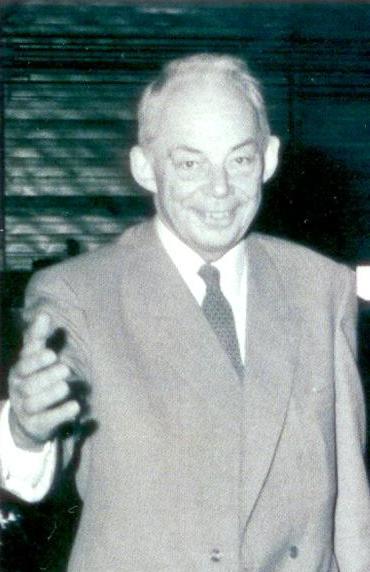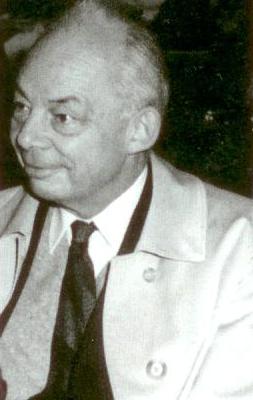Latest News
My latest ramblings.
Enjoy! I definitely got important things to say
My latest ramblings.
Enjoy! I definitely got important things to say
On October 11, 2011 Alexandre Havard lectured to 425 senior military officers at the US Army War College (Carlisle, PA)
The military has a long and distinguished reputation for character formation and leadership training. What they specifically appreciated from Alex’s lecture was the distinction he made between virtue and values. Virtues come from within. They are habits of the heart, mind and will that give us strength of character and power for action. Values are outside of ourselves – things like family, love of country, duty, and service to our fellow man. These are great ideals, but they do not give us the strength and power to achieve them like the human virtues of self-control, courage, justice, prudence, and humility give us. Finally, they loved Alex’s emphasis on Magnanimity and Humility as the “virtues specific to leaders,” which Alex summed up as greatness and service. Alex told them you can’t have true humility without magnanimity and true magnanimity without humility. The two are tied together. The lose of understanding today about the true meaning of magnanimity leads to a deficient understanding about authentic humility. These military officers understand what it means to live for something greater than yourself, and that real leadership is not self serving but requires great sacrifice and understanding of the dignity of those you lead. Alex’s illustrations and clarification of the two virtues of magnanimity and humility really connected with them. To give words and definition to what is deep within your heart can be a transformational moment for a person.
Lee Thomas
UNIV is a meeting in Rome that brings together thousands of university students from all over the world.
The keynote speaker at the UNIV Forum this year was Alexandre Havard. The topic was “Magnanimity: Striving towards Great Things”.
On Thursday 10th, Alexandre Havard delivered a seminar on Virtuous Leadership hosted in Riga, Latvia, by Big Business Day and Elevator International.
More than 50 Latvian senior executives from middle and large companies attended the seminar. The success of the event attracted the media as well, and a couple of interviews were held at top newspapers.
The participants of the seminar highlighted the relevance of the topic and the inspirational style of Alexandre.
Inga Bratena, founder and CEO of Big Business Day stated that “we are certainly looking forward to hosting more Virtuous Leadership seminars in the near future and even we are seriously thinking in how to promote Alexandre’s approach in the Latvian business community”.
Virtuous Leadership and Motivation in Action
 14th Lismullin Institute Business Leadership Forum (Wednesday 3rd November 2010)
14th Lismullin Institute Business Leadership Forum (Wednesday 3rd November 2010)
The seminar re-iterated the need for leaders to have courage, to be decisive and the enormous value of humility, which is exactly what is needed in the tough economic environment that Irish businessmen are operating in at present.
The value of magnanimity struck a real cord – particularly the very positive effect that it can have on leadership.
 Fraternal humility—the habit of serving others—far from being an obstacle to business is the condition for its success. In forty years, François Michelin lead his company from tenth to first place in the ranking of the world’s largest firms in its sector.
Fraternal humility—the habit of serving others—far from being an obstacle to business is the condition for its success. In forty years, François Michelin lead his company from tenth to first place in the ranking of the world’s largest firms in its sector.
By Alexandre Havard
(Translation from French, Anthony Salvia)
François Michelin was 28 years old when he took over as head of the large industrial concern, Michelin, in 1954. Ever since, he has occupied the office of Edouard Michelin, his grandfather and the founder of the company, who died in 1940. It is a small space notable for its modesty. Some years ago, François Michelin received in his office an employee who was about to retire. The employee recalled that when he was sixteen years old, his job was to deliver mail throughout the company. One day, he was asked to deliver a letter to Edouard Michelin personally. He knocked on the door of his office, and Edouard said, “Please come in, monsieur [trans., sir], and have a seat.” This sign of respect on the boss’s part made a strong impression on the young employee. Edouard’s words and demeanor remained in the employee’s heart from that day on. The founder of the company showed deep respect for other people no matter the station they occupied in life.
François Michelin is heir to this tradition. He is aware that “monsieur” is a contraction of “mon seigneur” [trans., my lord]. It means recognizing that each person is unique and possesses a part of the truth, which only he possesses.
When François Michelin speaks, his language is simple, accessible to all, a language that workers, trade unionists and managers understand: “If I use simple words when I speak, it is to be sure I understand what I am saying.” This is no mere witticism, but an expression of profound respect for the people he is addressing.
I recently visited Michelin at his company’s headquarters in Clermont-Ferrand in central France. In our two and a half hour conversation, he had to take important telephone calls on three occasions. These calls, as I learned later, concerned a campaign of calumny against him being waged in the media. And yet Michelin did not seem in the least perturbed by the affair, which must have been very unpleasant for him. He was completely absorbed in our conversation. He would return smiling, apologize, look me straight in the eye, and pick up the conversation where we left off. In François Michelin one observes self-mastery, serenity, and, above all, respect for other people, for each unique and irreplaceable person, and a strong desire to serve.
 “What strikes me about François Michelin,” says Carlos Ghosn, CEO of Reanult, “is the attention he pays to people, his concern to foster the growth of the people around him. He has great ambition for his firm, but an ambition that is not destructive of those who are there to help him realize it… His interior self is even stronger than his captain-of-industry self.”
“What strikes me about François Michelin,” says Carlos Ghosn, CEO of Reanult, “is the attention he pays to people, his concern to foster the growth of the people around him. He has great ambition for his firm, but an ambition that is not destructive of those who are there to help him realize it… His interior self is even stronger than his captain-of-industry self.”
To serve others, first you have to know how to listen to them. “Look at my ears,” François Michelin told us. “They have fallen off. It is my best qualification.”
For François Michelin “to help a person become himself, this is what counts above all.” It was this spirit that allowed Marius Mignol, a typographical worker without formal education, to invent the radial tire that revolutionized the industry. When he was hired, Mignol was supposed to work in the company’s print shop, but Edouard Michelin told the firm’s head of personnel: “Don’t judge by appearances…Remember that one must chip away at the stone in order to find the diamond hidden within.”
Mignol was assigned to a commercial position dealing with export markets. One day, Edouard Michelin noticed a strange slide ruler on his desk. Mignol had invented it to more quickly convert exchange rates. Edouard exclaimed: “This man is a genius!” Mignol turned out to be a man of extraordinary imagination. He was transferred to the research division at a time when the conventional tire had reached its limits because of its tendency to overheat at high speeds. To study the variations in heat inside the conventional tire, Mignol imagined a “fly cage,” as he called it. He proceeded to design a tire whose sides were replaced by radial metallic cables with space between them. The resulting tire proved revolutionary. It was because Edouard Michelin was more interested in people than in things that Marius Mignol was able to discover his talents and put them at the service of others.
François Michelin’s respect for people and desire to serve them is not just a necessity of the spiritual order, an act of fraternal humility; it is also a matter of good sense. “It is often said that facts are stubborn, but in reality it is we who are stubborn,” he says. We refuse to accept facts; we refuse to accept the truth about man. We fix our attention on things, whereas “the most powerful engine of enterprise, as Edouard Michelin liked to say, is human energy.”
Fraternal humility—the habit of serving others—far from being an obstacle to business is the condition for its success. In forty years, François Michelin led his company from tenth to first place in the ranking of the world’s largest firms in its sector.
